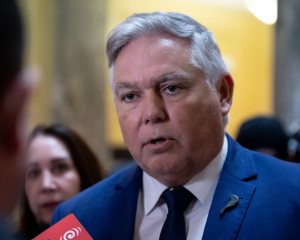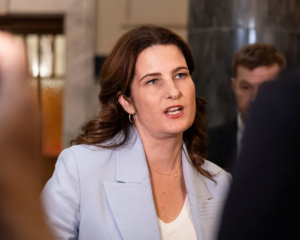The political choices in this year's election became much clearer yesterday with the Government indicating it is willing to partially sell four state-owned energy companies to help reduce the country's debt.
Although Prime Minister John Key said in his State of the Nation speech no decisions had been made and the Government was seeking Treasury advice on the partial privatisation, brokers believe work is well under way for the sale.
Mighty River Power, Meridian, Genesis and Solid Energy are being earmarked, with the Government also considering reducing its stake in Air New Zealand.
On the latest figures, the Government could raise between $2.4 billion and $4.8 billion by selling between 25% and 49% of the energy companies to New Zealand investors.
Investors could be buying shares in those companies within a year, as soon after the election as possible, brokers believed.
Reaction to the proposal was swift and divided along ideological lines, with Labour, the Greens and major unions opposing any sale and Business New Zealand and sharebrokers believing it to be progressive.
Craigs Investment Partners broker Chris Timms said: "This is brilliant, outstanding. It is good for investors to have these quality companies coming into the market. These are well-run, solid blue chip companies. They are not start-ups.
"If people are concerned about the companies going into foreign hands, they should get off their backsides and invest in them and never sell the shares. That stops any sale to overseas investors," he said.
At the last election, Mr Key ruled out selling any state-owned assets in his first term as prime minister, with commentators believing that position opened up the way for a sale if he was elected for a second term.
Finance Minister Bill English was last year pulled into line by Mr Key for suggesting Kiwibank could be sold.
The government-owned bank is not on the list of assets being considered for a partial sale.
Mr Key used the Air NZ ownership model, where the Government maintained a majority ownership, as an example for the four energy companies.
"Under this model, the Government has a controlling stake in what is a crucial piece of transport infrastructure and guarantees that it will be majority New Zealand-owned.
"But by not owning 100% of the airline, the Government also had capital free to invest in other assets."
That model could be extended to more of the Government's commercial assets, he said.
As well as freeing up capital, there were other potential benefits of a mixed ownership model.
The first was that it broadened the pool of investments for New Zealand savers, either directly or through investment funds such as KiwiSaver.
New, quality listings on the stock exchange would give "mum and dad" investors the option of putting their savings into large, proven companies rather than relying, as was so often the case, on property investments, Mr Key said.
The second was that the company reaped the benefit of sharper commercial disciplines, more transparency and greater external oversight.










